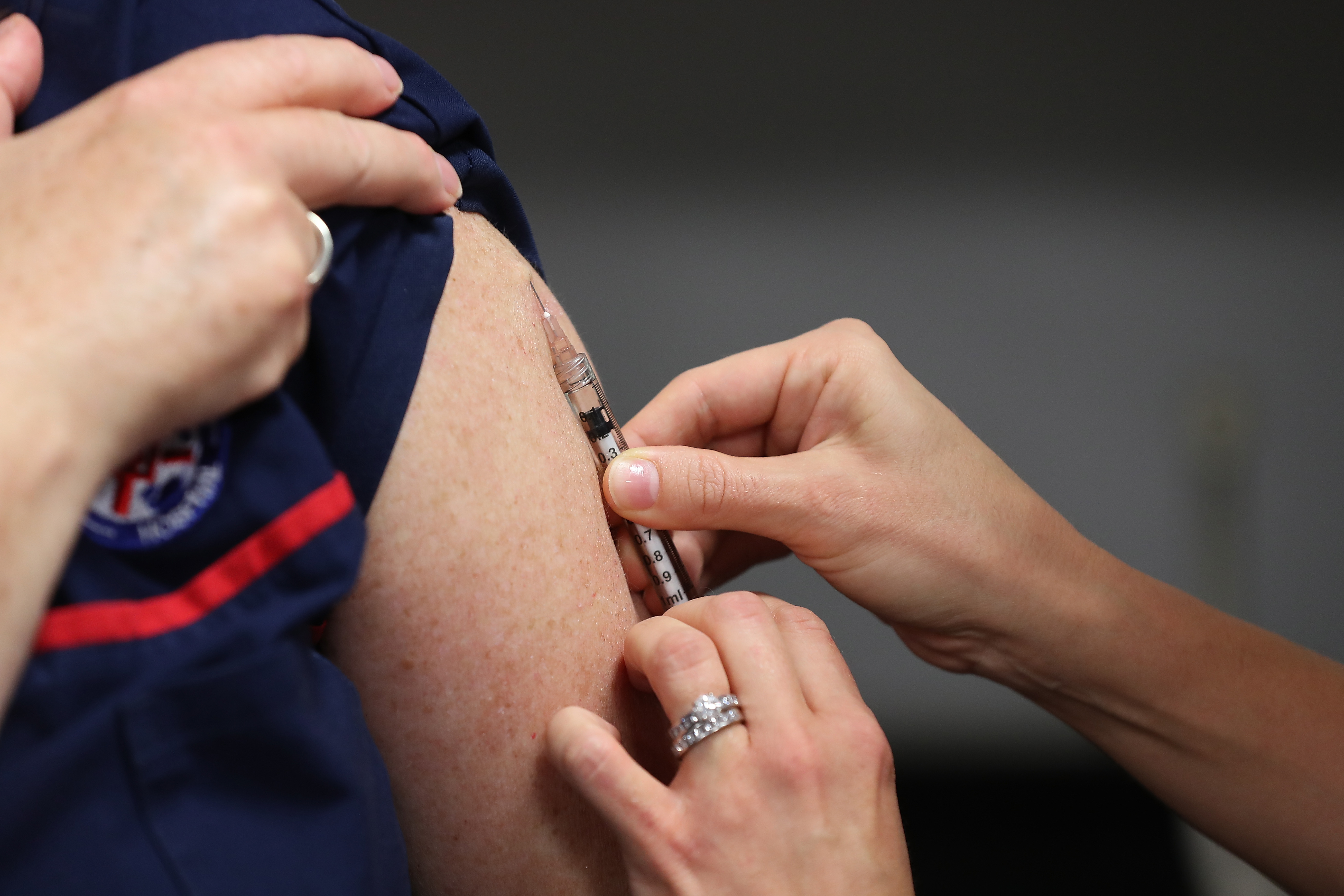The gender gap in coronavirus survival has scientists contemplating treating men with female sex hormones


A free daily email with the biggest news stories of the day – and the best features from TheWeek.com
You are now subscribed
Your newsletter sign-up was successful
Because male coronavirus patients are getting severely ill and dying at higher rates from COVID-19 than women, some scientists think estrogen and other female sex hormones may hold the key for treatment. So, doctors on Long Island in New York and in the Los Angeles area are launching trials of two different hormones (estrogen and progesterone, respectively) to see if there's any truth to the hypothesis, The New York Times reports.
It's not all pure speculation — one of the more telling signs is that pregnant women, who are usually immunocompromised, tend to have mild COVID-19 cases. Lo and behold, they have high levels of estrogen and progesterone. Research has also shown estrogen may have an effect on a protein the coronavirus uses on the surface of cells as an entry route. The hormone has been able to reduce the protein expression in rat kidneys, which certainly does not mean its success in humans is a given, but does signal effectiveness is at least possible.
Not everyone is convinced that hormones, while possibly helpful, are a "silver bullet," the Times reports. That's because elderly women are surviving at much higher rates than elderly men, as well, despite a drastic reduction in hormone levels for women after menopause. The doubters believe the difference may be genetic, just not solely related to hormones. It could also boil down to something more simple, like lower smoking rates among women, or the fact they wash their hands more, per the Times.
The Week
Escape your echo chamber. Get the facts behind the news, plus analysis from multiple perspectives.

Sign up for The Week's Free Newsletters
From our morning news briefing to a weekly Good News Newsletter, get the best of The Week delivered directly to your inbox.
From our morning news briefing to a weekly Good News Newsletter, get the best of The Week delivered directly to your inbox.
Still, the hormones in the trials are considered safe, so there seems little reason to nix the idea. Read more at The New York Times.
A free daily email with the biggest news stories of the day – and the best features from TheWeek.com
Tim is a staff writer at The Week and has contributed to Bedford and Bowery and The New York Transatlantic. He is a graduate of Occidental College and NYU's journalism school. Tim enjoys writing about baseball, Europe, and extinct megafauna. He lives in New York City.
-
 The environmental cost of GLP-1s
The environmental cost of GLP-1sThe explainer Producing the drugs is a dirty process
-
 Nuuk becomes ground zero for Greenland’s diplomatic straits
Nuuk becomes ground zero for Greenland’s diplomatic straitsIN THE SPOTLIGHT A flurry of new consular activity in the remote Danish protectorate shows how important Greenland has become to Europeans’ anxiety about American imperialism
-
 ‘This is something that happens all too often’
‘This is something that happens all too often’Instant Opinion Opinion, comment and editorials of the day
-
 Blue Origin launches Mars probes in NASA debut
Blue Origin launches Mars probes in NASA debutSpeed Read The New Glenn rocket is carrying small twin spacecraft toward Mars as part of NASA’s Escapade mission
-
 Dinosaurs were thriving before asteroid, study finds
Dinosaurs were thriving before asteroid, study findsSpeed Read The dinosaurs would not have gone extinct if not for the asteroid
-
 SpaceX breaks Starship losing streak in 10th test
SpaceX breaks Starship losing streak in 10th testspeed read The Starship rocket's test flight was largely successful, deploying eight dummy satellites during its hour in space
-
 Rabbits with 'horns' sighted across Colorado
Rabbits with 'horns' sighted across Coloradospeed read These creatures are infected with the 'mostly harmless' Shope papilloma virus
-
 Lithium shows promise in Alzheimer's study
Lithium shows promise in Alzheimer's studySpeed Read Potential new treatments could use small amounts of the common metal
-
 Scientists discover cause of massive sea star die-off
Scientists discover cause of massive sea star die-offSpeed Read A bacteria related to cholera has been found responsible for the deaths of more than 5 billion sea stars
-
 'Thriving' ecosystem found 30,000 feet undersea
'Thriving' ecosystem found 30,000 feet underseaSpeed Read Researchers discovered communities of creatures living in frigid, pitch-black waters under high pressure
-
 New York plans first nuclear plant in 36 years
New York plans first nuclear plant in 36 yearsSpeed Read The plant, to be constructed somewhere in upstate New York, will produce enough energy to power a million homes
